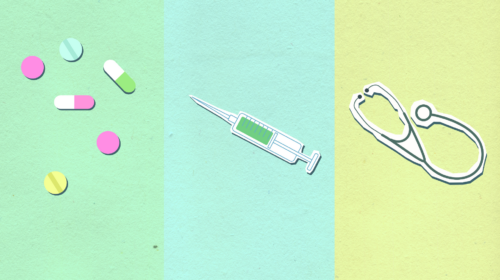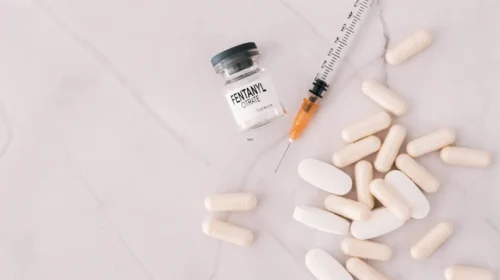While approaches may evolve with new research and methodologies, relapse prevention plans are currently considered a cornerstone of long-term success after addiction treatment. According to the National Institute on Drug Abuse (NIDA), addiction has relapse rates in the range of 40-60%, which is similar to the relapse rates from other chronic health conditions like high blood pressure and asthma.[1]
Whether it’s your first time in recovery or you have years of steady progress, a realistic, dynamic, and proactive relapse prevention plan is an effective tool to maintain better health and reduce the risk of a setback. Here are some tips to develop a relapse prevention plan for substance abuse.
What Is Relapse Prevention?
Substance use disorder is often characterized as a chronic disease affecting brain function and behavior. Relapse is a decline in health after temporary recovery – or in the case of addiction, a return to drug or alcohol use after a period of abstinence. Due to the chronic nature of addiction, relapse is often part of the disease.
A relapse can be a single event or a process. Before getting to a full-blown relapse, a person may experience a lapse, which is the initial use of a substance after a period of recovery. How this unfolds depends on the person’s emotional response to this lapse.[2]
If they’re upset about giving in to temptation, this can lead them to rethink ways to cope with similar situations in the future. If they feel defeated, as they’ll never be able to stop using drugs or alcohol, they may be more likely to abandon sobriety and return to addiction.
It’s common for people with addictions to experience a relapse at some point after formal treatment is complete. It doesn’t mean treatment failed, but the person may need different forms of treatment or additional support to stay on the path to recovery.
Relapse Prevention Plan Template
Like addiction treatment, relapse prevention plans should be tailored to the individual and their specific challenges and triggers. Here’s a step-by-step guide to writing your relapse prevention plan:
Identify Personal Goals and Motivations for Changes
It’s important to think about what you want out of recovery and your goals to develop your relapse prevention plan. Consider the changes you will make and your motivations for making them.
For example, is it important for you to improve relationships with friends and family? Do you want to keep your job and move forward in your career? Is getting physically healthy important to you? All of these are positive goals to include in your plan.
Develop a Plan to Manage Cravings and Triggers
A trigger is something that causes stress or induces cravings for drugs or alcohol. Everyone’s triggers may be different, but they could include:
- Stress
- Anxiety
- Anger
- Peer pressure
- Withdrawal symptoms
- Fatigue
- Loneliness
- Depression
- Insomnia
- Relationship problems
- Drug paraphernalia
- Some environments or sights and smells
- Spending time with certain people
The key to managing triggers is understanding what yours are. Maybe it’s certain situations that used to involve drinking or drug use, such as watching Sunday football or going out for a happy hour. Maybe it’s fighting with your partner or dealing with pressure at work.
Stress is a natural part of life. To adapt to your challenges more healthily, it’s important to have coping skills and stress management tools in place. Include these techniques in your plan.
Find Ways to Improve Self-Care
A daily routine for physical health, such as going to bed and waking up at the same time each day, eating balanced meals, and sticking to a fitness regime, is important for your long-term health. This routine can help you keep your mind clear, work off stress and tension, and improve your self-confidence.
It’s good to get into hobbies to keep you busy and focused on healthy outlets as a relapse prevention tool. Dance, painting, yoga, music, and other hobbies benefit your emotional health. Choose some hobbies and schedule them in your plan.
Set Up a Support System
The people in your life can be an excellent resource for recovery. Surround yourself with people who support your goals. Peer support and 12-Step groups can be beneficial during recovery to aid in relapse prevention. According to the Journal of Addictive Disorders, people who actively participate in Alcoholics Anonymous (AA), or similar mutual-support groups, were more likely to remain abstinent.[3]
Along with recovery peers, it’s good to have people in your life who you can rely on when you need more support, such as friends and family members. You should also keep the phone numbers of counselors and mentors nearby if you need to reach out.
Develop Accountability Strategies
Devise strategies to help yourself succeed early in your recovery process. Set small, attainable goals and reward yourself for positive progress. Make a list of things you’re thankful for and your reasons for getting healthier, which you should keep on hand to remind yourself what you’re working toward.
You should also consider the consequences of relapse. Write down what could happen if you relapse, such as going to jail, losing your job, losing your partner or children, or getting sick. These can remind you why staying sober is the better option.
Relapse Prevention Plan Example
Below is a sample relapse prevention plan to inspire you to create your own.
Personal Goals
- I want to improve my fitness and take care of my body.
- I want to become financially stable and re-establish my career.
- I want to make amends with family and friends who have suffered because of my addiction and improve those relationships.
- I want to attend anger management classes to better control my emotions.
Triggers and Potential Challenges
My triggers are:
- Spending time with friends who drink heavily
- Going out for happy hours with coworkers
- Social events that have alcohol
- Stress in work and home life
How I plan to cope with triggers and stress:
- I will use mindfulness and relaxation techniques to manage stress.
- I will avoid going to happy hour or spending time with friends who don’t support sobriety.
- I will attend 12-Step meetings at least twice a week.
- I will bring non-alcoholic drinks to social events that involve alcohol.
- I will keep a journal to track my triggers, stressors, and coping skills.
- I will spend time with hobbies that don’t involve drugs or alcohol.
- If I feel tempted, I will call a trusted friend, family member, or mentor for guidance.
Self-Care
- I will eat healthy and balanced meals.
- I will drink plenty of water.
- I will try to get eight hours of sleep each night.
- I will join a gym and exercise at least three times a week.
- I will go for a short walk every day.
- I will work toward being aware of my feelings and stress throughout the day.
My Support System
These people form my support system for sobriety:
- Peer counselor or mentor
- Members of my 12-Step group.
- Family members
- Sober friends
- Substance abuse treatment providers
Accountability and Gratitude
- I am thankful for my family and friends and want to be a positive force to them.
- My job and financial stability depend on staying sober.
- My physical health is directly related to sobriety. If I drink, I will not be able to take care of myself and others.
- My recovery plan is a promise to myself and my loved ones to remain sober and to be healthy.
If You Relapse
Don’t panic. Relapses should be avoided, but they do happen. It doesn’t mean your addiction treatment failed. Let your support system know and make arrangements to re-enter treatment to get more help. Programs like Recovery Unplugged can assist individuals in rebounding from relapse and working toward long-term recovery. Contact us today if you or a loved one has experienced a relapse.

























